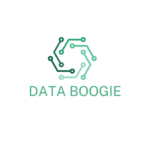Big Data Play
- Understanding Big Data Play: Big data play involves strategically using large volumes of data to drive insights and decision-making, enhancing operational efficiency and market responsiveness.
- Importance Across Industries: Organizations benefit significantly from big data through improved decision-making, personalized customer insights, increased operational efficiency, and gaining a competitive advantage.
- Applications in Various Sectors: Industries such as healthcare, finance, retail, manufacturing, and telecommunications harness big data analytics to optimize processes, deliver personalized services, and drive innovation.
- Emerging Technologies: Technologies like AI, machine learning, IoT, and blockchain are reshaping big data play, enabling real-time processing and enhancing data security.
- Challenges to Address: Organizations face challenges related to data privacy, regulatory compliance, and technical limitations that require robust governance practices and scalable infrastructure.
- Future Trends: Anticipating trends such as increased data volume, integration of IoT, emphasis on data ethics, and growth in augmented analytics can help organizations leverage big data for sustained growth.
In today’s digital landscape, big data is more than just a buzzword; it’s a game changer. Organizations across industries are harnessing the power of vast amounts of data to drive decision-making and gain a competitive edge. With the right strategies, businesses can turn raw data into actionable insights that fuel innovation and growth.
The big data play isn’t limited to tech giants anymore. Small and medium-sized enterprises are also leveraging analytics to understand customer behavior and optimize operations. As data continues to grow exponentially, the potential for organizations to unlock value from their data assets becomes increasingly critical. Embracing big data can transform how businesses operate and interact with their customers, paving the way for a more data-driven future.
Understanding Big Data Play
 Big data play refers to the strategic utilization of large volumes of data to gain insights and drive decision-making across organizations. This practice has evolved as businesses recognize the value of data analytics in enhancing operational efficiency and addressing market demands.
Big data play refers to the strategic utilization of large volumes of data to gain insights and drive decision-making across organizations. This practice has evolved as businesses recognize the value of data analytics in enhancing operational efficiency and addressing market demands.
Definition of Big Data Play
Big data play encompasses the collection, analysis, and application of vast datasets from diverse sources. This includes structured and unstructured data related to customer interactions, transactions, market trends, and social media behavior. The key attributes of big data include volume, velocity, variety, and veracity, which together define the complexity and potential insights derived from such information.
Importance of Big Data Play
Big data play holds significant importance for contemporary businesses.
- Enhanced Decision-Making: Organizations leverage data-driven insights to inform strategic choices, improving overall effectiveness.
- Customer Insights: Businesses analyze consumer behavior patterns, allowing personalized marketing strategies and better customer satisfaction.
- Operational Efficiency: Analytics identify inefficiencies within processes, facilitating targeted improvements and cost reductions.
- Competitive Advantage: Companies adopting big data analytics position themselves ahead of competitors by swiftly responding to market changes and emerging trends.
- Innovation: Insights derived from big data foster innovation in products, services, and business models, ultimately driving growth.
Harnessing big data play equips businesses to thrive in a digital landscape marked by rapid change and increasing data volumes.
Applications of Big Data Play
Big data play is transforming various industries by enabling organizations to extract actionable insights from vast datasets. This strategic utilization enhances operational efficiency and drives innovation.
Industries Utilizing Big Data Play
- Healthcare: Organizations analyze patient data to improve diagnostics, personalize treatment plans, and predict disease outbreaks.
- Finance: Institutions utilize big data for fraud detection, risk management, and personalized financial services.
- Retail: Retailers employ customer behavior data to optimize inventory, personalize marketing campaigns, and enhance customer experiences.
- Manufacturing: Companies use predictive maintenance analytics to monitor equipment health and minimize downtime.
- Telecommunications: Providers apply big data analytics to improve customer service, predict churn, and optimize network performance.
- Target: Target successfully used big data analytics to develop targeted marketing strategies, leading to substantial sales increases. Their predictive analytics tracked customer purchasing patterns and provided personalized promotions.
- Netflix: Netflix implemented big data to analyze viewer preferences, informing content creation and recommendations. This data-driven approach boosted viewer engagement and subscriber retention.
- Walmart: Walmart leverages real-time data analytics to optimize supply chain management and enhance inventory control. By predicting demand, Walmart minimizes stockouts and improves customer satisfaction.
- General Electric (GE): GE applied big data in its manufacturing processes, improving efficiency and reducing maintenance costs through predictive analytics. Their initiatives resulted in significant savings and increased productivity.
Challenges in Big Data Play
Big data play presents significant challenges that organizations must navigate to effectively utilize vast datasets. These challenges encompass data privacy concerns and technical limitations.
Data Privacy Concerns
Data privacy concerns arise as organizations collect and analyze large volumes of sensitive information. With regulations like GDPR and CCPA, businesses must ensure they comply with stringent data protection laws. Non-compliance can lead to hefty fines and reputational damage. Organizations must implement robust data governance practices, anonymize data where necessary, and obtain explicit consent from users. This responsibility not only safeguards individual privacy but also builds trust with customers.
Technical Limitations
Technical limitations pose hurdles for effective big data play. Organizations face challenges related to data storage, processing power, and integration capabilities. Many legacy systems struggle to manage the volume and speed of incoming data. Businesses must invest in scalable infrastructure, such as cloud solutions, to accommodate growing data needs. Additionally, data quality and consistency issues can impede analytical efforts, requiring advanced tools and practices for data cleaning and validation. Addressing these limitations is vital for maximizing the potential of big data analytics.
Future Trends in Big Data Play
Future trends in big data play focus on technological advancements and evolving user expectations, driving organizations to adapt and innovate effectively.
Emerging Technologies
Emerging technologies significantly enhance big data play, fostering new capabilities.
- Artificial Intelligence (AI): AI facilitates advanced analytics, enabling predictive modeling and real-time data processing, improving decision-making speed and accuracy.
- Machine Learning (ML): ML algorithms analyze massive datasets, identifying patterns and trends that inform business strategies and customer engagement.
- Internet of Things (IoT): IoT generates extensive data streams from connected devices, enriching big data pools and offering deeper insights into user behaviors and preferences.
- Blockchain: Blockchain enhances data security and integrity, addressing privacy concerns while enabling trustworthy data sharing across platforms.
These technologies collectively transform data management and analytical processes, making them crucial for organizations seeking a competitive edge.
Predictions for the Next Decade
Predictions for the next decade indicate a significant evolution in big data play that organizations must anticipate.
- Increased Data Volume: Organizations will manage exponentially larger datasets, emphasizing scalable storage and processing solutions.
- Integration of IoT with Big Data: The fusion of IoT data with traditional analytics will become standard, enriching insights across industries.
- Greater Emphasis on Data Ethics: Companies will prioritize ethical data usage, focusing on transparency, consent, and regulatory compliance in data collection and analysis.
- Expansion of Edge Computing: Edge computing will facilitate real-time processing of data generated by IoT devices, reducing latency and enhancing operational efficiency.
- Augmented Analytics Growth: Organizations will implement augmented analytics powered by machine learning and natural language processing, streamlining insights and user accessibility.
Acknowledging these trends enables organizations to leverage big data play for sustained growth and innovation.
Embracing big data play is essential for organizations aiming to thrive in today’s competitive landscape. By strategically leveraging vast datasets, businesses can unlock valuable insights that drive innovation and enhance decision-making. As technology evolves and data volumes soar, the ability to adapt to these changes will determine success.
The integration of advanced tools and emerging technologies will further empower organizations to optimize operations and improve customer experiences. Addressing challenges such as data privacy and technical limitations is crucial for maximizing the benefits of big data.
Ultimately, those who recognize the transformative power of big data play will be well-positioned to navigate the complexities of the digital age and achieve sustained growth.



